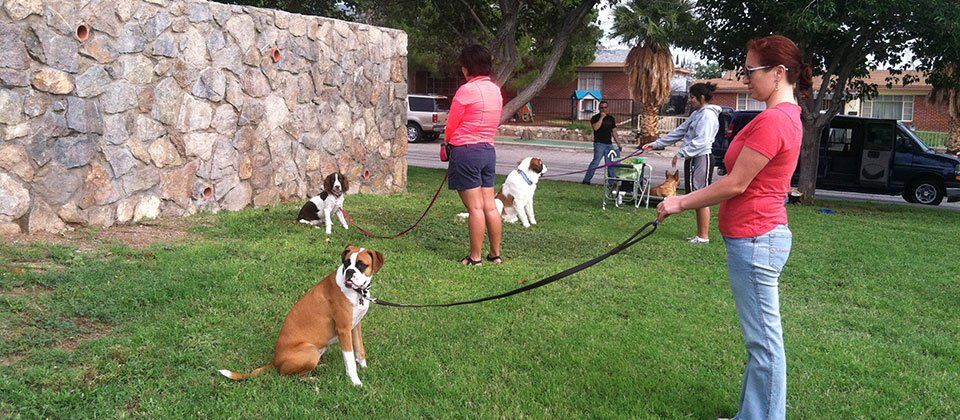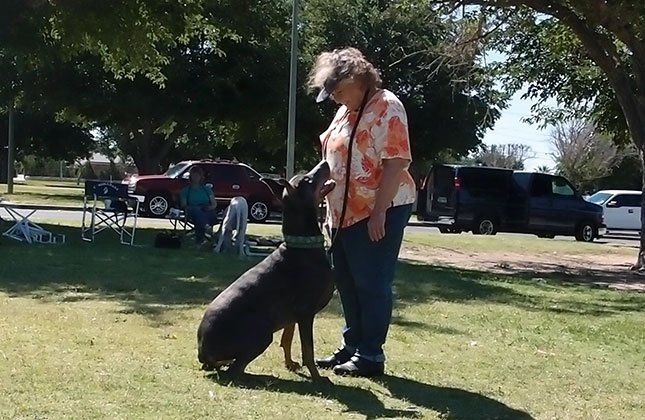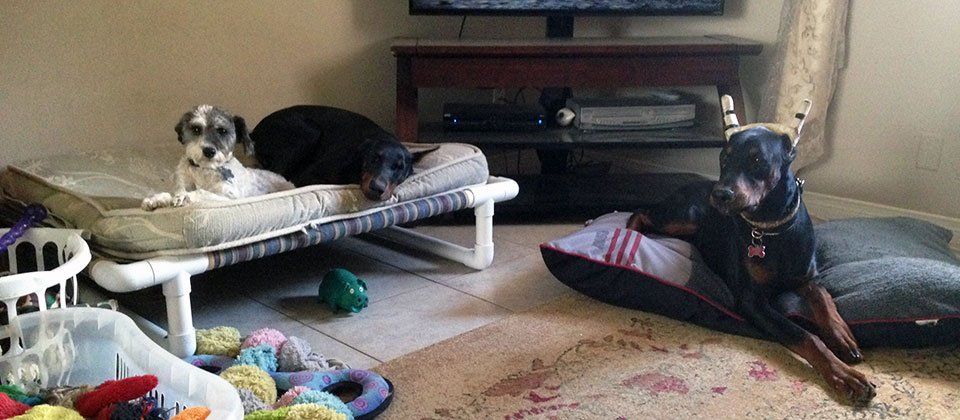Service Dog Training
Do you need a Service Dog?
First, let's cover the differences between a few common terms..........
- Service/Assistance Dog- A dog who supports a person with disabilities by performing tasks that help them to function both at home & in public. These dogs are trained to behave in public settings as well as to perform individual tasks. Some common types of service dogs are Guide Dogs for the Blind, Alert Dogs for Epilepsy or Diabetes, Hearing Dogs, Mobility Dogs, and Assistance dogs who turn on/off lights, open doors, and retrieve items for their people. Psychiatric Service dogs also perform important tasks for people who suffer from debilitating mental illnesses such as depression, anxiety, & PTSD.
- Emotional Support Dog- Any dog can be designated as an emotional support dog by your physician. ESD's are not allowed public access under the Law the same way Service/Assistance dogs are, their only allowances are Public transportation or housing. ESD's are not trained to perform tasks, they are simply providing emotion support by being present. While there is no special training required for an ESD, they *should* be taught some basic skills & how to behave in public if you plan to take them on public transportation, as well as having a stable enough temperament to be in public so they are not a danger to themselves or others.
- Therapy Dog - A volunteer animal who visits schools, hospitals, nursing homes, libraries, and other such facilities to provide emotional support to people. Because their job is to make people feel better, they should be friendly and outgoing, and enjoy interacting with all dots of people. Therapy Dogs are not granted any special public access under the law; they are only allowed into facilities where they are invited. Therapy dogs are certified/registered by private organizations, most of whom require some formal training & a test to determine if the dog has the skills & temperament to be a therapy dog.
So, based on this information what kind of dog do you need?
The good news is that in most cases training for these 3 types of dogs can start in the same place- with a basic group class like our Good Manners 1. This foundation class provides all the skills that any companion dog can benefit from, as well as preparing them for more advanced skills. If you have a dog you aren't sure is cut out to be a service dog, a great way to put that to the test is to complete some basic formal training.
What kind of training does a Therapy Dog need?
If you are interested in volunteering with one of the many Therapy Dog Organizations with your dog, the first step is some basic obedience training (Good Manners 1), followed by CGC & CGCA (Good Manners 2 (CGC test included), & 3 (Community Canine, CGCA test included). The Therapy Dogs International & Delta Pet Partners tests are both very similar to the CGCA, so if your dog can pass that, it's a good indication they are ready for therapy dog testing. Dina is an evaluator for TDI, and often offers both the CGCA & TDI Therapy Dog test at the same time.
How much does Service Dog Training Cost?
If you are able to attend classes/lessons & work on training in between sessions, Service Dog Training doesn't have to break the bank. I usually recommend the Good Manners 1, 2, & 3 (Community Canine) classes. These 18 sessions include the CGC (Canine Good Citizen) and CGCA (Canine Good Citizen Advanced) tests, and if your dog can pass both of those its a good indication that he or she has what it takes to be a Service Dog. Task related training is very individual and can be done privately on an as needed basis. Additional Public Access training can also be done on an as needed basis. If you need more help with foundation training or have trouble attending classes/going on outings, Board & Train may be an option to consider if your dog meets the B & T criteria.
What about "Certification"?
There currently is no requirement for dogs to have a certification to be a Service Dog under federal law. There are many organizations/trainers who provide training and offer a certification issued by their organization if your dog completes their training program, but as there is no standardized test required by the ADA, there can be quite a bit of difference between what each individual organization considers are the necessary skills to meet the requirements. There are also a lot of sham organizations offering badges & certificates to anyone who will fill out their online questionnaire and pay their fee. There is also no requirement for a handler to attend formal training classes or programs. You can train your dog yourself, without paying anyone to help you. If you are considering the process of making your dog a service dog, its important for you to become familiar with federal & local laws so that you can be educated on what your rights & responsibilities are.
For information on Federal rules & regulations for Service Dogs visit ADA.gov
For information about flying with a Service Dog, visit U.S. DOT
Questions? Call/Text 915-588-2938 or Email K9funworks@gmail.com.
Ready to Take a Class?e









